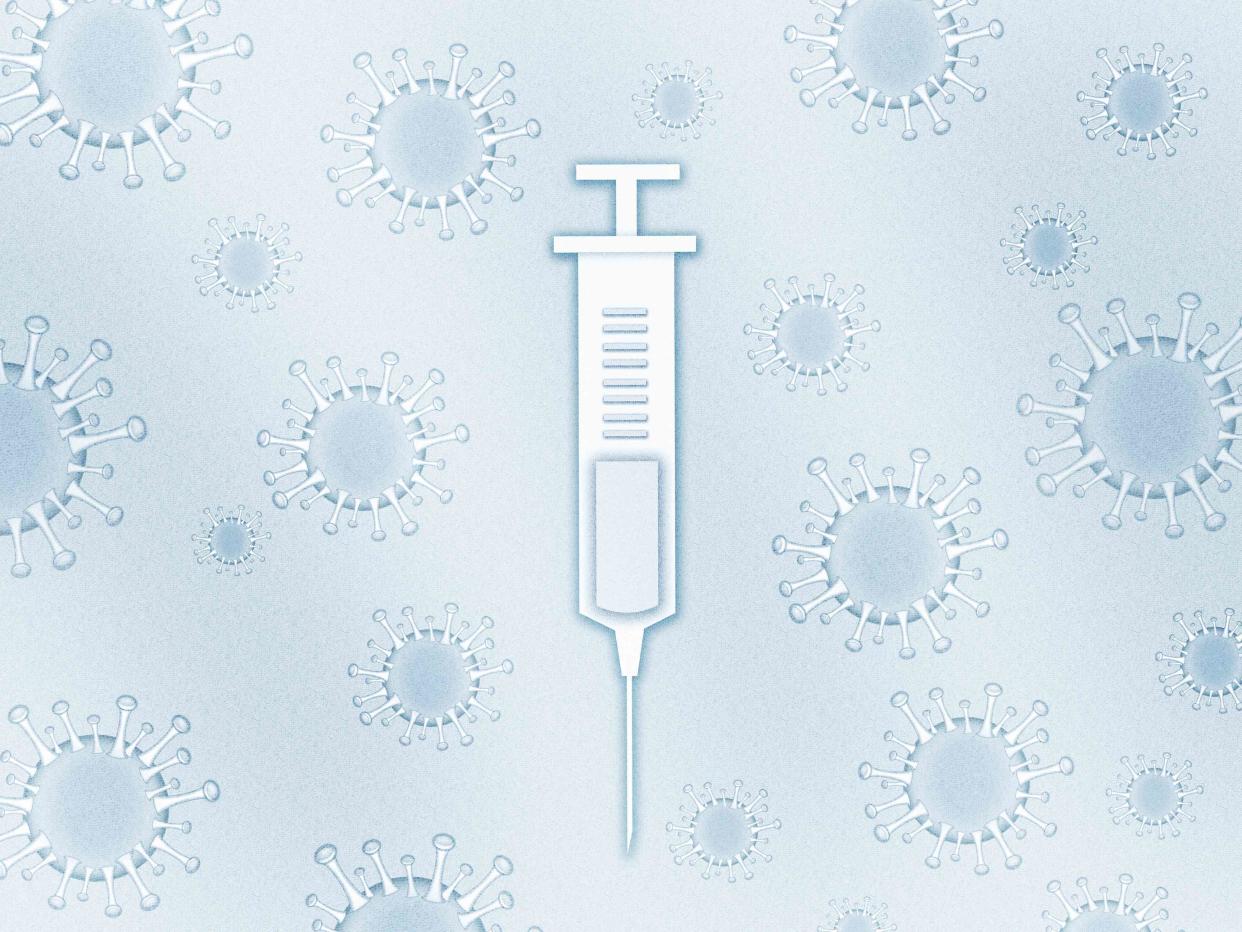How Soon After a COVID-19 Infection Can You Get the New Vaccine?

Adam Gault / Science Photo Library / Getty Images
- Oops!Something went wrong.Please try again later.
Fact checked by Sarah Scott
Key Takeaways
If you have an active COVID-19 infection, experts recommend that you delay vaccination to reduce the chances of exposing healthcare workers and others to infection.
Patients who recently had COVID may consider delaying their vaccine by 3 months from when symptoms began or until after they complete their isolation period and have recovered from the illness.
After recovering from a COVID infection, some patients may get a vaccine sooner, including people who are older, immunocompromised and have certain disabilities, or underlying health conditions.
The Centers for Disease Control and Prevention (CDC) advises everyone aged 6 months and older to get an updated COVID-19 vaccine to protect against the potentially severe effects and outcomes of COVID-19 during the upcoming fall and winter seasons.
In fact, receiving the COVID-19 vaccine continues to be safest and most reliable strategy for building immunity and protection against severe illness, hospitalization, and death caused by COVID-19, Kate Grusich, a spokesperson for the CDC, told Verywell in an email.
But is it possible to get the latest vaccine while you’re currently infected with COVID-19? If you choose to wait, how soon after recovering from infection should you consider getting vaccinated? Here’s what experts have to say.
Can You Get the Vaccine While You Have COVID?
If you have an active COVID-19 infection, you should not get the updated vaccine. The main reason for this precaution is so that you can minimize the risk of potentially exposing healthcare workers and others to the virus.
"Getting the COVID-19 vaccine while you are sick with COVID is not harmful to you, but puts others at risk, particularly those at the vaccination site," William Moss, MD, a professor in the department of Epidemiology, Molecular Microbiology and Immunology at the Johns Hopkins Bloomberg School of Public Health, told Verywell in an email. "In addition, you may not derive the full benefits of the vaccine if you receive it while sick with COVID."
Instead, Grusich and the CDC recommend holding off on getting the COVID-19 vaccine until you have fully recovered from the acute illness, are symptom-free, and meet the criteria to end your isolation.
How Soon After an Active COVID Infection Can You Get the New Vaccine?
If you recently had COVID-19, you can get the updated vaccine as early as when your isolation period is over: at least 5 days after symptoms started and as late as 10 days after symptoms started, said Moss.
However, the CDC says you can wait three months if you'd like. That's because the likelihood of getting COVID again in the near future is low and because allowing space between your illness and a shot may improve vaccine response.
"Studies have shown that increased time between infection and vaccination might result in an improved immune response to vaccination," Grusich said. “Also, you have a low risk of re-infection in the weeks to months following infection." One such study conducted recently showed that antibody responses continue to mature following primary exposure by infection for at least 400 days after the last antigen exposure.
Eric Asher, DO, a family medicine physician at Lenox Hill Hospital in New York, suggests waiting 8 to 10 weeks after recovering from a COVID-19 infection before receiving the updated vaccine because of this temporary natural immunity.
It’s important to note that natural immunity does wear off over time. Once it does, Asher said getting vaccinated with the updated vaccine will make your body’s response to COVID that much stronger. Plus, natural immunity alone won't protect you from newer variants, which the vaccine is designed to do.
Can You Get Vaccinated Sooner?
Although the CDC states you may consider delaying your vaccine by 3 months after you recover from a COVID-19 infection, there are certain people who should consider getting a vaccine sooner rather than later:
Those at risk of severe disease (including older adults, those who are immunocompromised, have certain disabilities, have underlying health conditions, or other diseases that place them at risk)
Those with close contacts or family members who are at high risk of severe disease if exposed to COVID
People who live in an area with an increasing number of hospitalizations for COVID-19
If you still have questions regarding when you should get vaccinated after an active COVID-19 infection, it's best to discuss your specific situation with a healthcare provider.
Where Can You Get The Updated COVID-19 Vaccine?
If you are interested in receiving the most updated COVID-19 vaccine, you can do so at your doctor’s office or local pharmacies such as CVS and Walgreens, Moss said. You can also find more information on updated COVID-19 vaccine locations near you by visiting vaccines.gov.
According to Grusich, most people are still able to access COVID-19 vaccines at no cost through their private insurance, Medicare or Medicaid, and the Vaccines for Children Program.
However, adults without insurance or whose insurance requires a co-pay for in-network coverage of COVID-19 vaccines can get a COVID-19 vaccine at no cost through the CDC’s Bridge Access Program.
Read Next: Where to Find Free COVID Vaccines Right Now—No Matter Your Insurance Status
What This Means For You
After recovering from a COVID-19 infection, experts say you may consider delaying getting the most updated vaccine by three months. However, some people may decide to get it sooner if they are at risk of severe disease or have increased transmission of the virus in their community. If that's you, know that you maybe be able to get the shot within 5-10 days of your illness.
The information in this article is current as of the date listed, which means newer information may be available when you read this. For the most recent updates on COVID-19, visit our coronavirus news page.
Read the original article on Verywell Health.

